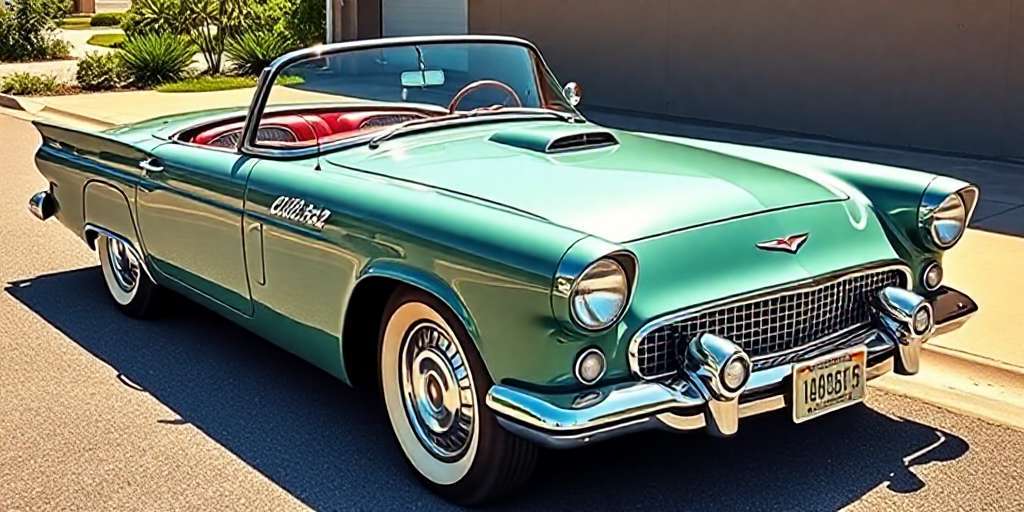25 500€
35 000€
34 000€
29 000€
Appraising a classic car involves understanding various factors that affect its value. These factors include the car’s condition, history, and current market trends.
Utilizing essential valuation tools can provide insights into fair pricing. Collectors often rely on reputable resources to ensure accurate appraisals and informed decisions when buying or selling a classic car.

The value of classic cars is influenced by multiple factors that enthusiasts and collectors must consider. Recognizing these elements can greatly affect any appraisal process.
Several critical components contribute to the overall worth of a classic car:
Over the years, certain classic cars have experienced significant appreciation in value. Understanding these trends assists in understanding potential future values.
The history of a classic car can significantly affect its value. Key aspects include:
Several tools are available to assist in the appraisal of classic cars, providing essential insights into their value.
Hagerty offers a suite of resources specifically designed for classic car enthusiasts.
The Hagerty Price Guide serves as a comprehensive resource, detailing classic car values based on a wealth of historical data. By analyzing auction results and private sales, this guide helps determine fair market prices.
Collectors benefit from Hagerty’s extensive database, which includes over 40,000 vehicles. This enables them to make informed decisions and understand market fluctuations. With an expert team conducting physical inspections, the valuation becomes even more precise.
Another valuable tool comes from American Collectors Insurance, known for its focus on classic vehicle specifics.
VMR Auto Guides provide vital pricing information in alignment with current market trends. This resource helps users assess a vehicle’s value against various models and conditions.
American Collectors Insurance utilizes real-time data to ensure valuations reflect the most up-to-date market shifts. This integration highlights the dynamics affecting classic car pricing.
In addition to Hagerty and American Collectors Insurance, other resources exist to enhance appraisal accuracy.
Undertaking the appraisal of a classic vehicle involves several detailed steps. Each phase requires careful attention to ensure an accurate evaluation of value and condition.
A complete assessment begins with a meticulous inspection of the car itself. This phase includes evaluating various aspects such as physical condition and mechanical health.
The first element to consider is the overall physical appearance of the vehicle. Inspect the exterior for:
Also, paying special attention to the interior will provide insight into the vehicle’s overall care. Look for wear on:
A crucial step in appraisal involves checking the mechanical components of the car. Ensure that the engine runs smoothly and check for:
Evaluating the brakes and suspension will provide additional insights into the vehicle’s overall functionality and safety.
Documentary evidence plays a significant role in validating a classic car’s value. Gathering the right information can enhance the appraisal process.
Comprehensive maintenance records can indicate how well the car has been cared for over the years. Look for documentation that details:
Knowing the history of ownership can affect the appraisal significantly. A clear record showcasing previous owners, especially if notable, adds to the vehicle’s story and value. This includes:
Understanding the current market dynamics and developing effective sales strategies is vital for successful transactions in the classic car arena.
Both private sales and auctions provide unique opportunities for buying and selling classic cars. Each has its own set of advantages and challenges.
Opting for a private sale can lead to several favorable outcomes:
Auction houses present an exciting environment to buy or sell classic cars, but they require strategic navigation:
Setting the right price is an essential component of the appraisal process. It requires comprehensive market awareness and strategic thinking.
Analyzing the asking prices of similar vehicles in the market helps establish a competitive price point:
Determining the final asking price involves careful consideration:
Gaining perspectives from seasoned classic car collectors can provide valuable information regarding the appraisal process. Their experiences often highlight the nuances and intricacies involved in determining the value of these vehicles.
Many collectors have faced various challenges throughout their journey in the classic car market. Understanding these challenges can help others navigate their own valuation processes more effectively.
One common obstacle is the inconsistency in market valuations. Prices can vary widely based on condition, desirability, and regional trends. Collectors express frustration over fluctuating values that don’t always align with their expectations, making appraisals a complex undertaking.
Some collectors share stories of satisfaction stemming from well-timed purchases or successful restorations. Conversely, others voice regrets about undervaluing their cars or overpaying due to lack of research. This mixed experience underscores the importance of thorough due diligence when appraising a classic car.
Experienced collectors often have useful insights that can enhance the appraisal process for others.